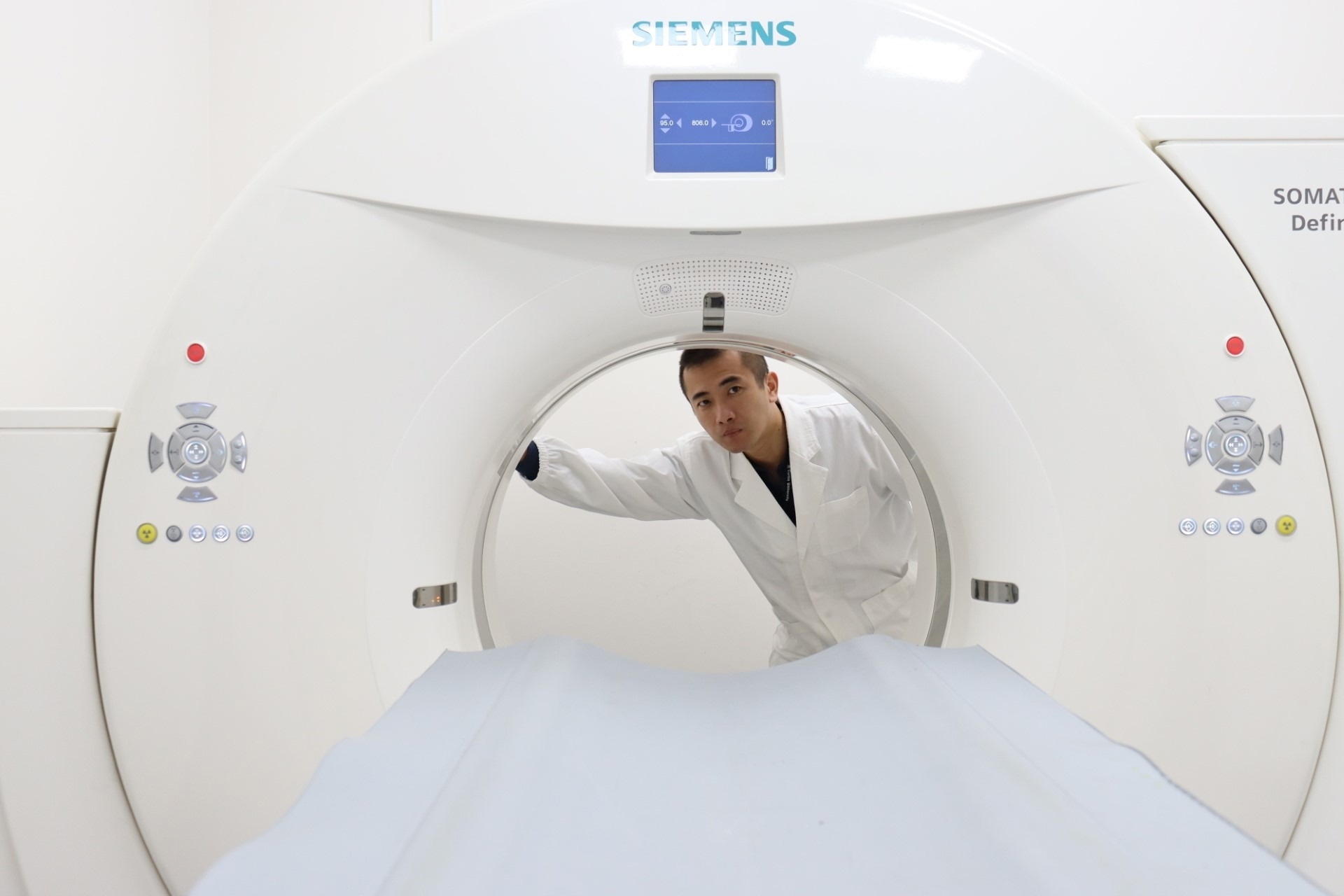Curtin University marine scientists have joined a multi-pronged search into why nearly 100 pilot whales stranded at Cheynes Beach, near Albany on Western Australia’s south coast last month.
 Dr Chong Wei prepares CT Scan machine at the CSIRO, Bentley campus Perth, WA. Image Credit: Curtin University
Dr Chong Wei prepares CT Scan machine at the CSIRO, Bentley campus Perth, WA. Image Credit: Curtin University
Researchers are developing high-tech 3D image sections of hearing structures of stranded whales to assess evidence of interference to their echo-location systems.
Using computer processing and CT Scanning, we will create 3D image sections of the whales’ inner ear structures, which help their brains gather information about their surroundings. With the data we collect, we hope to be able to assess significant injuries or any damage in the animal’s ears. From the information we gather, we can build acoustic models that simulate sound production, as well as the propagation and reception processes that occur inside the animal’s head. These are vital clues that may indicate whether some form of inner-ear damage played a role in the devastating mass stranding of the whales on WA’s south coast.”
Dr Chong Wei, Marine Bioacoustic Specialist, Curtin’s Centre for Marine Science and Technology
Dr Wei is available to discuss the below and similar including:
- What will your research be investigating?
- What impact could inner ear damage have on the whales?
- How can inner ear damage be caused?